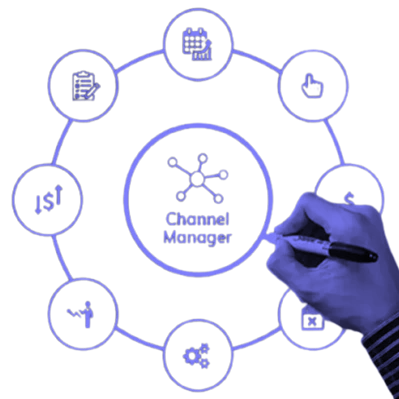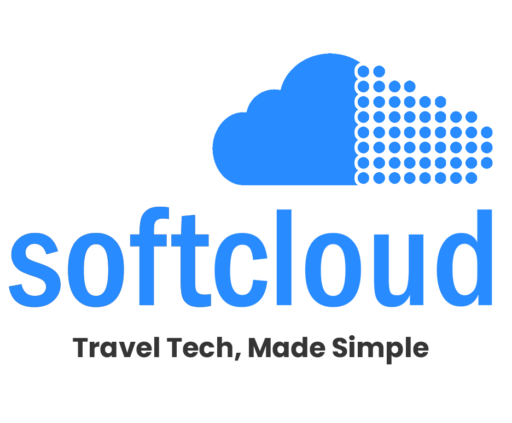The hospitality industry is a saturated area that has undergone digital transformation over the years, but at the core of it is the cloud hotel management system. With hotels around the globe eager to improve operations, create better guest experiences, and drive revenue, cloud technology has quickly become the backbone of modern hospitality management.
Cloud-Based Hotel Management System Definition.

An all-in-one software solution that is hosted on a third-party server, a cloud-based hotel management system will allow you to manage every aspect of your hotel operations via an internet connection. Cloud-based solutions are unlike traditional on-premise solutions and especially can provide the flexibility, scalability, and accessibility a hotel staff demands to manage operations anytime and anywhere.
Bringing together reservation management, front desk operations, housekeeping coordination, revenue management, and guest services, these systems form a single, unified platform that can be accessed through web browsers or mobile applications.
Key Features of Modern Cloud-Based Hotel Management Systems

Real-Time Reservation Management
Currently cloud systems provide real time availabilities across each and every distribution method, resulting instantaneous booking facility. This guarantees that the inventory is managed correctly, and overbooking situations that harm guest satisfaction do not happen.
Multi-Channel Distribution
Integration with diverse booking channels such as OTAs, GDS, and direct booking platforms for visibility and revenue optimisation.
Revenue Management Tools
Using historic patterns, competitor pricing and other market dynamics, hotels can fully leverage advanced analytics and pricing algorithms to optimize room rates.
Guest Experience Enhancement
Embedded centralized guest profiles, preference tracking, and communication tools also facilitate personalized service delivery that drives customer loyalty.
Operational Efficiency
Housekeeping, maintenance and front desk operations are automated, eliminating manual errors and making staff productive.
The Business Impact: Why Hotels Are Migrating to Cloud Solutions

Cost Effectiveness
Moving to the cloud removes the need for costly hardware installations and IT infrastructure upkeep. It allows the hospitality industry to lower its TCO (Total Cost of Ownership) by a staggering 40% compared to traditional on-premise solutions.
Scalability and Flexibility
Cloud systems scale with your growth, whether you have a limited range or a huge hotel chain. Want to add new properties, extend functionality, or balance seasonal increases with no material infrastructure assets?
Enhanced Security
Enterprise-level security — Top cloud providers also employ enterprise-grade security levels such as GDPR compliance, PCI DSS compliance, data encryption, and frequent backups.
Real-Time Data Access
Management teams can view performance metrics, occupancy rates, and revenue reports instantly from anywhere, empowering them to make data-driven decisions.
Integration Capabilities: The Foundation of Comprehensive Hotel Management
Cloud based hotel management systems that are the best have the ability to integrate with numerous other third party services and platforms exceptionally well. For hotels aiming to create a seamless operation ecosystem, this integration capability is key.
Global Distribution System (GDS) Integration
Integration with most of the major GDS platforms, such as Travelport and Sabre, allows sure hotels to get access to corporate travelers and travel agencies around the globe. This connectivity broadens market access and enhances opportunities to be booked by professional travel planners.
Bed Bank Partnerships
Integrations with bed bank providers like Stuba and TBO facilitate wholesale booking channels and allow hotels to drive occupancy and revenue via B2B partnerships.
Internet Booking Engine Integration
A strong Internet Booking Engine (IBE) is an in-house direct booking channel that lowers the reliance on third-party commissions while ensuring effortless booking journeys for guests.
SoftCloud IBE: A Prime Example of Advanced Hotel Technology Integration
SoftCloudTec’s SoftCloud IBE exemplifies how modern cloud-based solutions can transform hotel booking operations. As a fully integrated, cloud-based Internet Booking Engine, it demonstrates the practical application of advanced hotel management technology.
The platform’s integration with leading GDSs like Travelport and Sabre, combined with bed bank connections to Stuba and TBO, showcases how comprehensive connectivity can provide real-time pricing, live availability, and instant confirmations directly through hotel websites.
Key technological advantages include:
- Automated Offer Creation: Streamlines the process of creating and managing booking offers
- Multi-Channel Booking: Ensures consistent availability across all distribution channels
- Real-Time Integration: Provides instant updates and confirmations
This integration approach eliminates the common problem of booking discrepancies and ensures guests receive accurate, up-to-date information throughout their booking journey.
Implementation Best Practices for Cloud-Based Hotel Management Systems
Assess Your Current Operations
Analyze your existing processes, pain points, and needs before you finalize on a cloud-based system. Such an assessment helps in choosing the right set of features and the required integrations.
Prioritize Integration Requirements
Pinpoint the third-party systems, payment processors, and distribution channels you need to enable your operation. If you want to integrate any of the above integrations, make sure you choose the right platform.
Plan for Staff Training
Implementation would require good training of staff members. While cloud systems are often designed to be easy to use, the right training will ensure that users are able to take full advantage of the features that are available to them.
Implement Gradually
Take a phased approach to implementation —begin with the core of functionalities and then add functionalities as required. This approach reduces impact to business-as-usual.
Monitor and Optimize
Conduct routine assessments of system performance, user adoption, and operational efficiencies to find optimization opportunities.
Security and Compliance in Cloud-Based Hotel Systems
Security concerns deter hotels from choosing the cloud. However, modern hotel management systems that are based in the cloud answer these concerns by:
Data Encryption
Guest data and payment information are secured in transit and at rest through end-to-end encryption.
Compliance Standards
Ensures compliance with applicable regulations such as PCI DSS for payment processing and GDPR for data protection through compliance with industry standards.
Regular Security Updates
Security in Cloud is better than most on-prem solutions as the cloud providers update security and fix vulnerabilities continuously.
Access Controls
Advanced user permission functions ensure staff only sees the information they need to do their job.
Future Trends in Cloud-Based Hotel Management
Artificial Intelligence Integration
AI-based tools like dynamic pricing, predictive analytics and chatbot-based guest services are are evolving to be the integral part of reaching out to the advanced hotel management systems — by hotels and their respective staff members.
Mobile-First Design
Mobile accessibility is one of the most important features of the modern systems as it allows the staff to run the operations with smartphones and tablets.
IoT Integration
IoT connectivity makes the hotel room interoperable with smart room, keyless entry and energy management technologies.
Voice Technology
Rounded Questions Tech-savvy guests are discerning with amenities, and voice-activated room controls and voice-based booking systems are some features which are coming up to be a differentiator for properties.
Measuring Success: Key Performance Indicators for Cloud-Based Systems
Operational Efficiency Metrics
- Reduction in check-in/check-out times
- Decreased booking processing time
- Improved staff productivity rates
Revenue Optimization
- Increased direct booking percentages
- Improved average daily rate (ADR)
- Enhanced revenue per available room (RevPAR)
Guest Satisfaction
- Higher guest satisfaction scores
- Increased repeat booking rates
- Positive online review trends
Conclusion: Embracing the Cloud for Hotel Management Excellence
The transition to cloud-based hotel management systems represents more than a technological upgrade—it’s a strategic transformation that positions hotels for sustainable growth and competitive advantage. The integration capabilities, scalability, and cost-effectiveness of cloud solutions make them essential tools for modern hospitality operations.
As demonstrated by comprehensive solutions like SoftCloudTec’s SoftCloud IBE, the most effective systems combine robust functionality with seamless integration capabilities. By providing real-time connectivity to major distribution channels while maintaining operational efficiency, these platforms enable hotels to focus on what matters most: delivering exceptional guest experiences.
Hotels considering this transition should evaluate their specific needs, prioritize integration requirements, and select platforms that offer both current functionality and future scalability. The investment in cloud-based hotel management technology pays dividends through improved operational efficiency, enhanced guest satisfaction, and increased revenue optimization.
For hotels ready to embrace this digital transformation, the question isn’t whether to adopt cloud-based systems, but which solution best aligns with their operational needs and growth objectives. The future of hotel management is in the cloud, and the time to make this transition is now.
